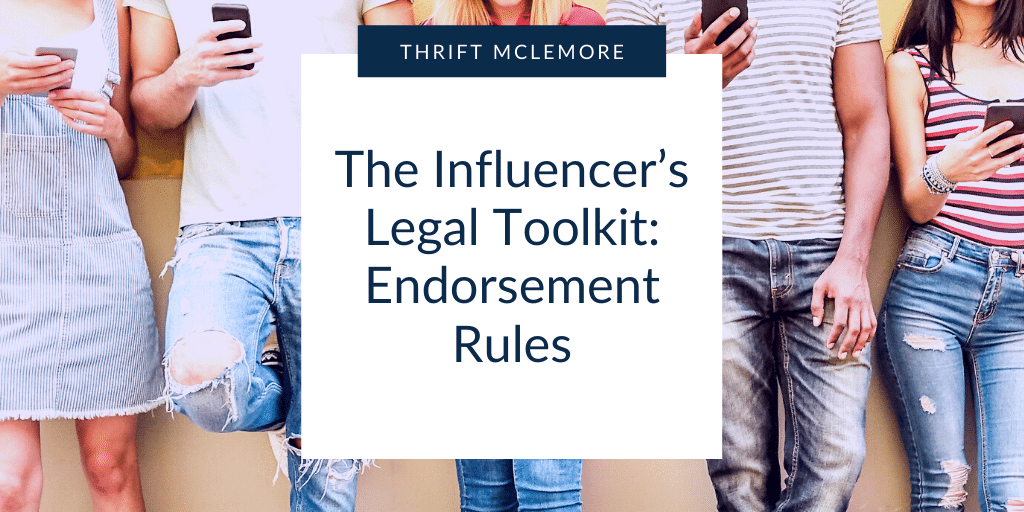Chances are that you, as an active social media user, see dozens of sponsored Instagram posts or YouTube ads a day. These posts usually feature a highly stylized and aspirational influencer describing their love of a new clothing line, lipstick brand, or, if you are anything like this author, a new nutritional supplement that has changed the way the Joe Rogan-esque influencer lives. If you are a social media influencer, you know how much effort goes into sponsored social media content. But are you covering your legal bases when you post?
Our “The Influencer’s Legal Toolkit” series will address common legal issues that influencers need to be aware of and how to avoid legal pitfalls. This post kicks off the series with an overview of the rules that influencers need to know when they endorse a product or service on a social media platform.
Let’s start with a who’s who: The Federal Trade Commission (“FTC”) works to stop deceptive ads and go after people who violate their rules. As an influencer, it is your responsibility to know and comply with the FTC’s rules when endorsing a product or service.
According to the FTC, an “endorsement” on social media includes featuring a product or service in your post, reviewing a brand on your platform, or even simply tagging a brand. Whenever you endorse a product or service, you must disclose to your followers if you have any financial, personal, employment, or family relationship with the brand you’re endorsing. Keep in mind, a “financial relationship” is not limited to an exchange of money; it includes anything of value such as free products, discounts, or any perk. Your disclosure should be clear and difficult to miss.
The specific disclosure rules that apply depend on the form of media. For example, if you are posting a video that endorses a product or service, the FTC suggests that merely disclosing the sponsorship in the video description or comment is not enough. To cover your bases, the disclosure about the sponsorship or relationship with the brand should also be in the video itself.
Other issues arise if you are promoting a product’s benefit that requires proof you don’t have. A great example from my childhood Is sports energy bands. These were wrist and neck bracelets that people wore because they believed it would increase their body’s natural energy, and thus, making them better at sports. These types of endorsements are particularly tricky because it would be deceptive (according to the FTC) for an influencer to say that the “product gives people more energy and makes them better at sports.” But it would not be deceptive advertising for an influencer to say, “I think the product gave me more energy and made me better at sports.” However, the second statement about the influencer’s experience with the product could still be considered a deceptive ad if the influencer personally thought the product did not work yet claimed it did.
Because of the ever-changing nature of the social media marketing industry, it is always advisable to talk to a legal professional about your particular situation. Speak with one of the knowledgeable attorneys at Thrift McLemore to make sure your endorsements comply with marketing and advertising laws as well as your contract with the brand. We are here to support you, so you can focus on what you do best.


